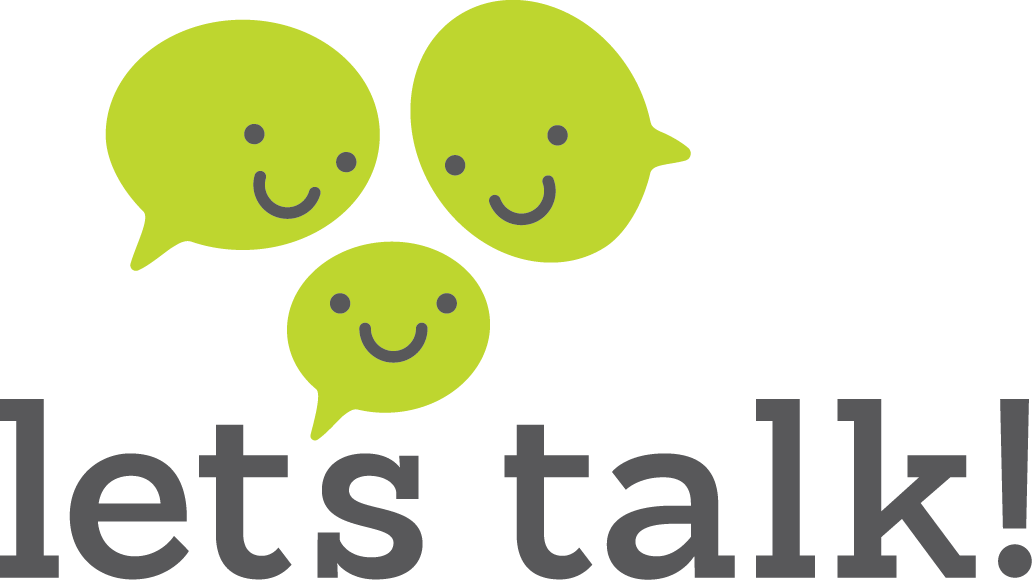Research
1: The Majority of Brain Development Happens in Early Childhood
- A child’s brain has reached 75% of its adult brain weight by age 2; 90% by age 5.i
2: Children Are Not Ready for School Upon Entering Kindergarten
- 46% of U.S. children entering kindergarten are at risk for failure; they lack the vocabulary, sentence structure, and other basic skills children need to do well in school. ii
3: Once Children Fall Behind, They Tend To Remain Behind
- By fourth grade, 40% of children are still not reading at a basic level.iii
4: Talking With Young Children Impacts Their Future Academic Success
- The quantity and quality of talking with children has been shown to develop children’s linguistic skills, as well as improve their ability to problem-solve.iv
5: More Talking with Parents = Higher I.Q. for Child
- Researchers Betty Hart and Todd Risley found that children’s IQ scores were closely correlated with their vocabularies. They conclude that the more parents spoke with their child, the larger the child’s vocabulary, and the greater his or her IQ.v
6: It’s Not Just What Parents Say, It’s Also How They Say It
- Studies of dialogic reading, an evidence-based interactive technique, show that the manner in which an adult reads with a child is critical to the child’s development of expressive language.vi
- Zahava Oz Weizman and Catherine Snow found that exposing children “to a rich, diverse, and sophisticated vocabulary in the preschool years” resulted in linguistic capacity improvements.vii
7: Reading With Children is Another Way of Talking With Children
- Reading to children, which has many benefits, improves a child’s oral language development.viii
- Helen Raikes found that children in Early Head Start whose mothers read to them 3-6 times/week had greater vocabulary development gains than children whose mothers read to them less often.ix
8: Current Variations Exist Based on Parental Language, Culture, and Economic Status
- Parents who are not poor have been found to be twice as likely as poor parents to read to their infants and toddlers several times a week. Hispanic and African-American parents (poor and non-poor) have been found to be less likely to read to their children than parents who are White. And mothers who are not English speakers have been found to be less likely to read to children than parents whose primary language is English.x
- Hart and Risely demonstrated that both the number and the types of words that children hear varies by class, with children from upper and middle-class backgrounds faring far better than children whose parents were on welfare.xi
9: Parenting Styles and Skills Matter In Terms of Children’s Academic Success
- Jeanne Brooks-Gunn and Lisa Markman found that “children from more well-off homes tend to experience parental attitudes that are more sensitive, more encouraging, less intrusive and less detached — all of which, they found, serves to increase I.Q. and school-readiness.”xii
10: Family Literacy Programs Can Enhance Both Parenting AND School Readiness
- Brooks-Gunn and Markman conclude that “programs with a parenting component appear effective at enhancing parenting and school readiness…These programs are, in our opinion, a good bet for increasing child well-being.”xiii
References
i Love, R. and W. Webb. Neurology for the Speech-Language Pathologist. Boston: Butterworths, 1986.
ii U.S. Department of Education, National Center for Education Statistics, Entering Kindergarten: A Portrait of American Children When They Begin School: Findings from The Condition of Education 2000, Nicholas Zill and Jerry West, Washington, DC: U.S. Govt Printing Office, 2001.
iii http://www.childrenofthecode.org/interviews/wendorf.htm
iv Blakeslee, S. 1997. “Studies Show Talking with Infants Shapes Basis of Ability to Think.” The New York Times. April 17, 1997.
v Tough, Paul. “What It Takes to Make a Student.” The New York Times. November 26, 2006.
vi Blom-Hoffman, Jessica, Therese M. O’Neil-Pirozzi, Joanna Cutting. “Read Together, Talk Together: The Acceptability of Teaching Parents to Use Dialogic Reading Strategies Via Videotaped Instruction.” Psychology in the Schools. Vol. 43(1), 2006.
vii Snow, C. Burns, S. Griffin, P (Ed.). Preventing Reading Difficulties in Young Children. National Academy Press:Washington, DC, 1998.
viii Eve Clark, The Lexicon in Acquisition, Cambridge University Press, 1993; Betty Hart and Todd Risley, Meaningful Differences in the Everyday Experience of Young American Children. Baltimore: Brookes, 1995; Janellen Huttenlocher and others, “Early Vocabulary Growth: Relation to Language Input and Gender,” Developmental Psychology 27, 1991; Zehava Weizman and Catherine Snow, Lexical Input as Related to Children’s Vocabulary Acquisition: Effects of Sophisticated Exposure and Support for Meaning. Developmental Psychology. Vol 37, No. 2, 2001.
ix Brooks-Gunn, Jeanne and Lisa B. Markman. “The Contribution of Parenting to Ethnic and Racial Gaps in School Readiness.” The Future of Children. Vol 15, No 1, 2005.
x Brooks-Gunn, Jeanne and Lisa B. Markman.
xi Hart, Betty and Todd Risley, Meaningful Differences in the Everyday Experience of Young American Children. Baltimore: Brookes, 1995.
xii Tough, Paul. “What It Takes to Make a Student.” The New York Times. November 26, 2006.
xiii Brooks-Gunn Jeanne and Lisa B. Markman.
